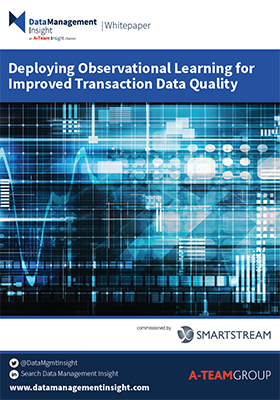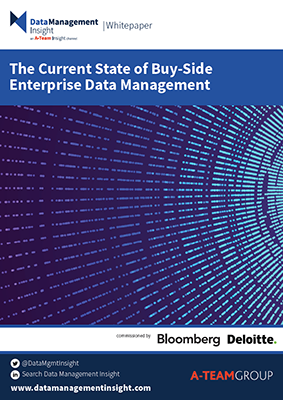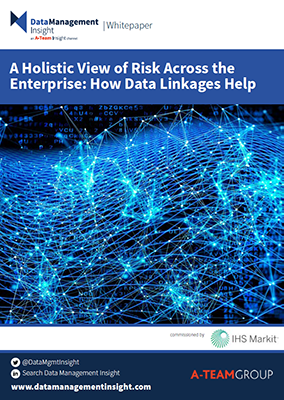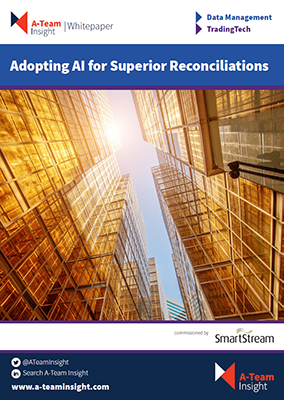A-Team Insight White Paper
Can ‘Observational Learning’ Help Improve Data Quality?
Data quality is a pre-requisite for financial institutions seeking to automate their operations. But given the huge volumes of transaction data, often in a wide array of formats, it is very difficult to achieve. Can newer AI-based techniques such as observational learning actually help or are they just hype? This white paper explores: What observational...
Revenue Management for Exchanges and Other Financial Data Providers
Monetisation of market data and other financial information has become a major revenue stream for exchanges and electronic trading venues. But these organisations are often dependent on third parties – often market data vendors – for the final connection to end-consumers of their data products. This can make establishing and maintaining direct client relationships challenging....
Reference Data Usage Management for Financial Institutions
The ongoing struggle to track reference data usage and implement controls to manage and permission access to the data means many financial institutions lack visibility and understanding of how data services are being used by staff, teams, business units and IT applications. This can have expensive and potentially damaging consequences in terms of unexpected invoices...
How to leverage the LIBOR transition to improve your data management game
The final goodbye to Libor has been described as the Y2K moment for data managers in financial services – and with the phase-out slated for the end of 2021, firms need to act now to ensure a smooth transition. The replacement of Libor with alternative benchmarks presents an immense challenge for financial institutions, especially given...
Controlling Market Data Usage and Costs in WFH Environments
The Covid-19 pandemic has transformed the way financial services firms operate: with staff dispersed across numerous alternative sites or working from home, and many still requiring access to fee-liable market data and other financial information services in order to function. Data managers are struggling to control access to this data – facing the risk of...
Financial Markets Operations Response to COVID-19: Best Practices for Working from Home
The COVID-19 pandemic is disrupting all walks of life, and carries with it implications for society beyond even the obvious and immediate health impact. Business is being hit across the board, with many corporations sending staff home in an effort to keep them both safe and working. It’s clear that firms can’t rely on a...
The Current State of Buy-Side Enterprise Data Management
The advent of enterprise data management (EDM) held up the promise of more streamlined operations, improved cost efficiencies and a tighter rein on data access. But after a decade spent trying to implement EDM, few investment managers feel they are getting the control, quality or insights they were expecting. According to an A-Team survey of...
A Holistic View of Risk Across the Enterprise: How Data Linkages Help
Gaining a comprehensive view of their risk exposures has long been a challenge for financial institutions. Standard measures have been embraced to measure and manage market risk, and the emergence of a standard legal entity identifier in the form of the LEI has gone some way toward addressing the issues of counterparty and credit risk...
Contractual Rights Management: It’s Time to Take Control of Data Usage
Contractual rights management has become a hot topic in financial information and market data circles following a number of public instances involving high-profile financial institutions breaching licensing agreements with data vendors – and paying the price with both significant financial penalties and damaged reputations. A potential solution for contractual rights management is the emerging Open...
Adopting AI for Superior Reconciliations
Firms’ reconciliation and exceptions management processes are manually intensive, expensive and prone to error. With rising compliance costs and greater competition narrowing margins in financial services, firms are looking to streamline their reconciliations processes through automation, giving them the opportunity to reduce the number of exceptions they manage and the time it takes to deal...










